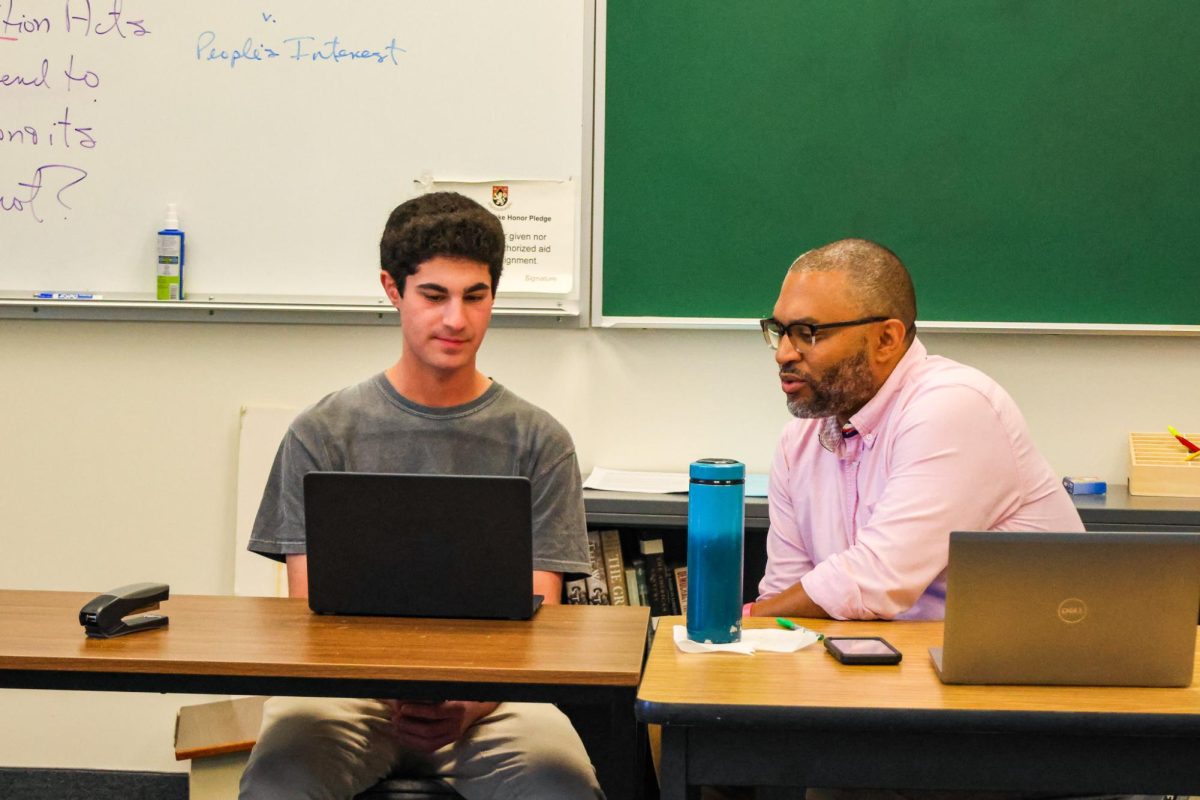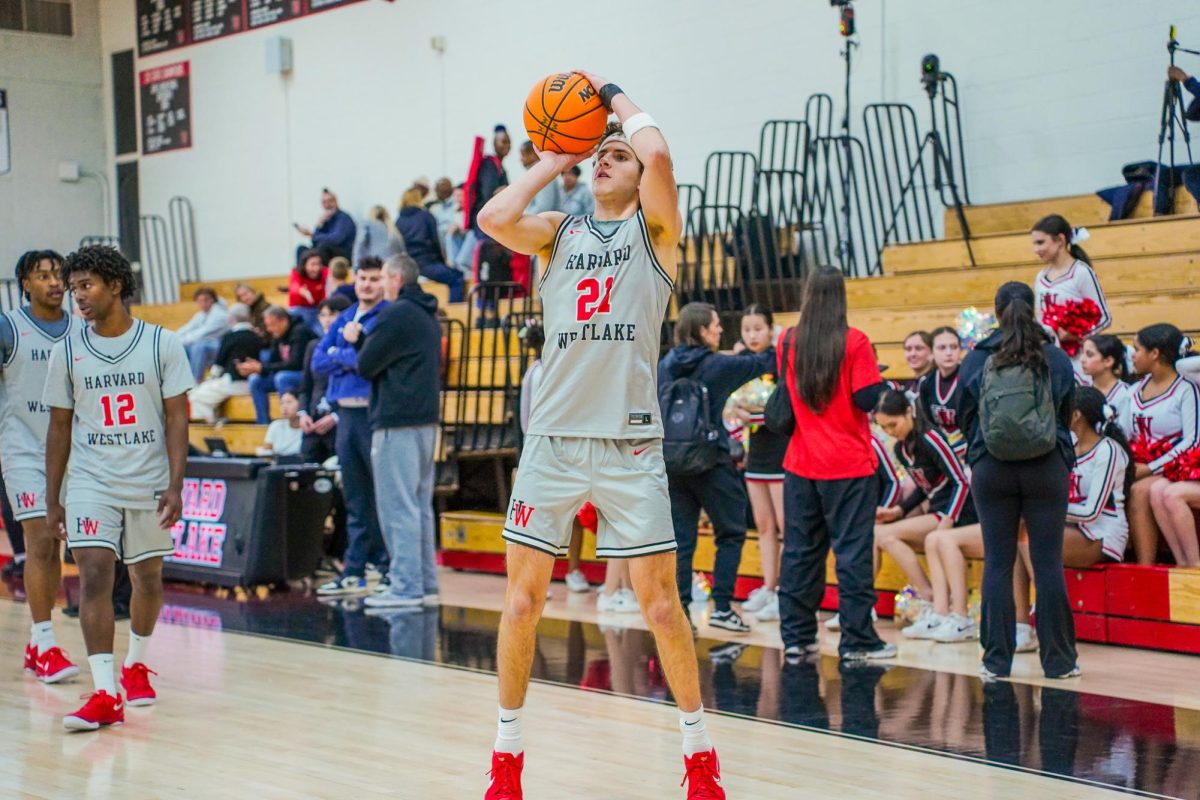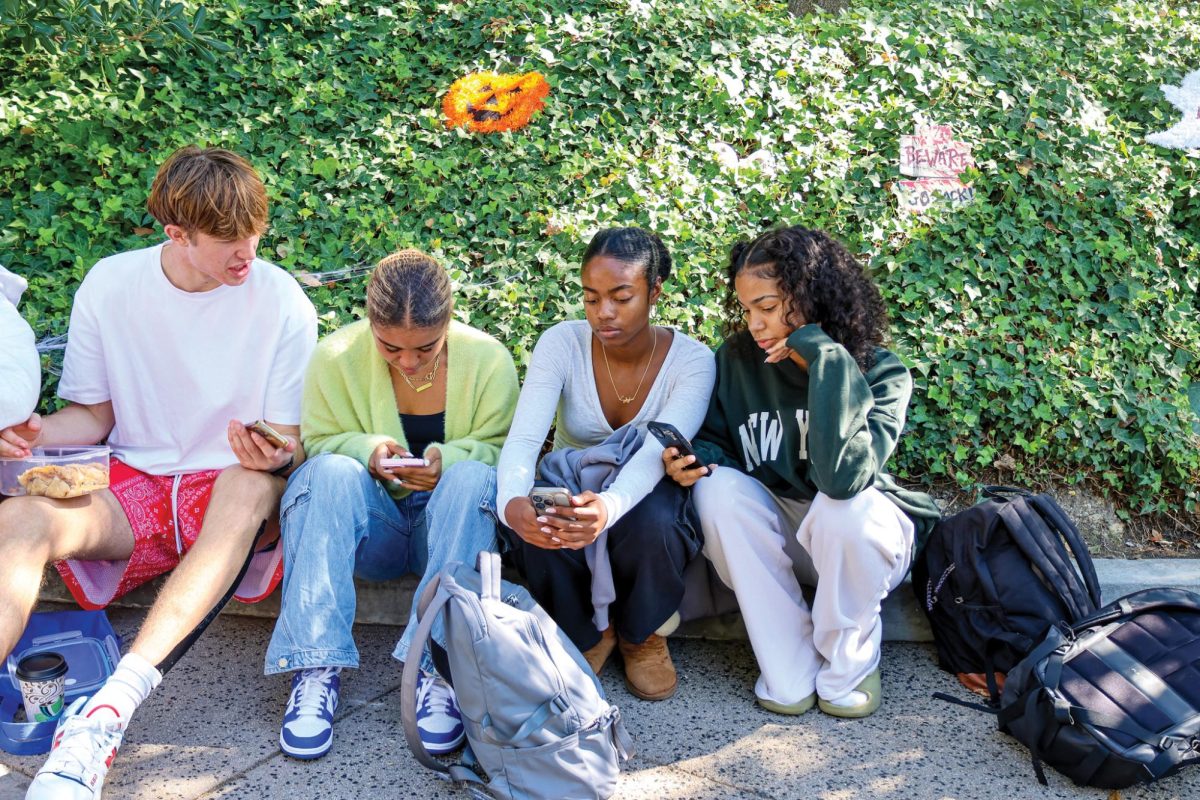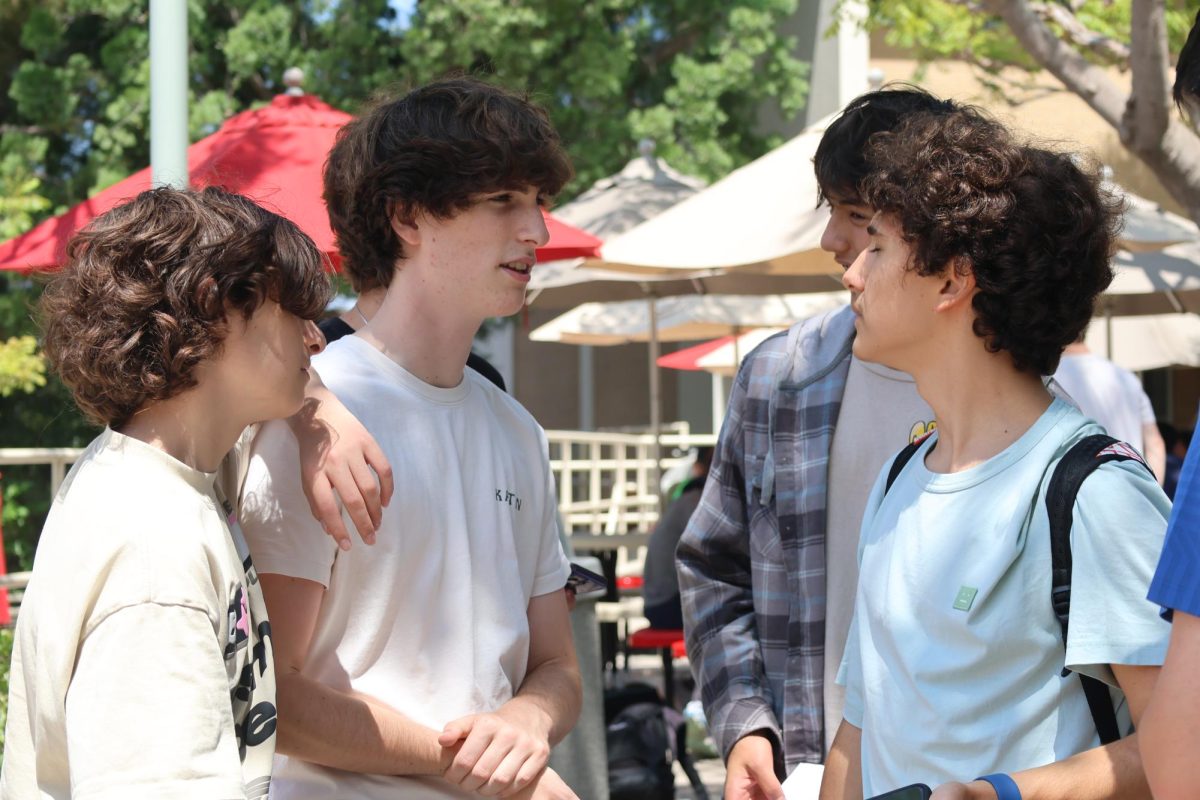In a mock election conducted by AP government students, 72.19 percent of 543 Harvard-Westlake students polled voted for Hillary Clinton and Tim Kaine, while 14.73 percent of 543 HW students polled voted for Donald Trump and Mike Pence.
“In every election there will be winners and losers,” Harry Gestetner ’18 said. “But the way many of those on the losing side have acted has been undemocratic and inordinately hostile — it’s not fair to brand all Trump supporters as misogynistic, racist homophobes.”
This disparity among students left Trump supporters in the minority on campus, creating some backlash against these members of the community, Chaplain J. Young said.
One student, who preferred to be anonymous, said he feels uncomfortable expressing his support for Donald Trump on campus for fear of how his peers and teachers will view him.
“I just can’t express my opinion at all without being labeled as a sexist or a racist,” the student said. “It’s pretty unfair. You’re honestly not even allowed to have your own opinion, which I think is very un-American.”
Similar feelings of uneasiness with sharing political opinions plagues some students in support of Hillary Clinton as well, students said.
Liz Yount ’17 stood among roughly 8,000 protesters in MacArthur Park Nov. 12. with Black Lives Matter, socialist groups, Palestinian liberation groups, and other political organizations. She marched with the other demonstrators, some of whom were also Harvard-Westlake students, until she could not move. There was an authentic sense of coming together, she said.
At school, Yount said she feels some sense of solidarity, especially amongst the senior girls, but not in the same way she experienced at MacArthur Park.
“On campus there are people who dissent, there are people who are going to be mean to you and be aggressive if you even so much as wear a Hillary shirt or do something even just subtle,” Yount said. “There’s unity at Harvard-Westlake from the girls in the senior class for example. That’s a good example of unity, but that came as a result of negativity, which is kind of what’s happening now [after the election] too. I just think what you get [at the protest] that you don’t get at HW is that intense community and authentic sense of togetherness.”
Since Nov. 8, the school has been trying to reconcile how to embrace inclusivity and how to remain politically neutral.
President Rick Commons said that after hearing concerns and witnessing how the election “opened deep wounds for many” in the school, he decided to send an email Nov. 11 reaffirming the administration’s commitment to diversity and inclusion, regardless of anyone’s race, gender, nationality, religion, abilities or sexual orientation.
The rhetoric of this election season, particularly Trump’s language throughout his campaign, does not reflect the school’s values or mission statement, Commons told the Chronicle.
“I think the way it was written was very smart because it also expanded beyond the election to other issues, [like how] people don’t feel comfortable for whatever reason,” Gillian Gurney ’17 said. “I, myself, and others have had reasons to not feel comfortable on campus and now this [email] shines light on issues that may not have been very visible before.”
Interim Head of Upper School Liz Resnick also sent a letter to faculty Nov. 9 to make sure that all students were feeling safe, regardless of politics.
Commons said some parents, students and faculty asked whether or not he was making a partisan statement.
“My answer is that it was not intended to be,” he said. “It was intended to be a reaffirmation of our values in the context of big questions in our country about how important diversity and inclusion are.”
The morning after the election, some teachers canceled quizzes, lesson plans and homework to discuss the election. History teacher Dror Yaron canceled a quiz for his classes and used the free time to discuss the results and consequences, Naomi Barlava ’17 said.
While some students appreciated this gesture, others felt their teachers’ adjustments were politically charged.
“If Hillary had won, I don’t think the reaction would have been the same on campus,” Davis Ford ’18 said. “For teachers to cancel tests, assignments or homework, I think it’s unfair because that’s putting their own personal view into the class.”
Keeping their personal political views to themselves has been difficult task for teachers, Young said.
“Yes, there were times that I had to bite my tongue,” Young said. “That I was tempted to say something that wouldn’t have been overly loving.”
Some alumni have since criticized the school for seeming to be neutral about the divisive election after Head of External Relations Ed Hu posted a New York Times article about Alexander Marlow ’04, who is the Editor-in-Chief of the website Breitbart News, on Facebook Nov. 15. Buzzfeed News later wrote about the exchange.
“HW alumnus and Breitbart News Editor-in-Chief Alexander Marlow ’04 in the news,” Hu wrote in the post, which was deleted that night.
Trump’s new chief strategist, Stephen Bannon, was the chairman of Breitbart before joining the new administration and said earlier this year that the website is the “platform for white supremacy.” In August, the New York Times wrote that it is a source of controversey due to “material that has been called misogynist, xenophobic and racist.”
“I expected some vocal reaction given the controversial nature of Breitbart, but not the volume of discussion that has occurred,” Hu said. “I am grateful that the conversation in the alumni community in the thread has been respectful and thoughtful, representing civil discourse which was sorely missing during the recent election season.”
Heather Green ’98 said she needed to express her “sheer outrage” in an email to Commons, which she also sent to the Chronicle.
“First, there was the posting of HW’s ties to Breitbart’s hate spewing in the same banal tone we hear about so-and-so Gyllenhaal starring in a new role or so-and-so Collins on the court,” Green said in the email Nov. 16. “The absence of resistance was alarming right off the bat. THEN, in response to comments pointing this out, Hu posted [Commons’] letter of inclusivity. This was a perversion in the extreme; the principle and practice of tolerance to protect the vulnerable cannot be glibly translated to their tormentors without furthering assault on those you originally aimed to protect. As the kids say these days, I can’t even. I can’t even.”
Moving forward, the community needs to be respectful of each other’s opinions and avoid name calling, Ford said.
“Being able to listen with open ears and open heart to people that you really, really disagree with is a pretty darn good lesson actually,” Young said. “I would hope that some positive fallout from [the election] would enable us to listen to points of view that are difficult for us to hear.”



































